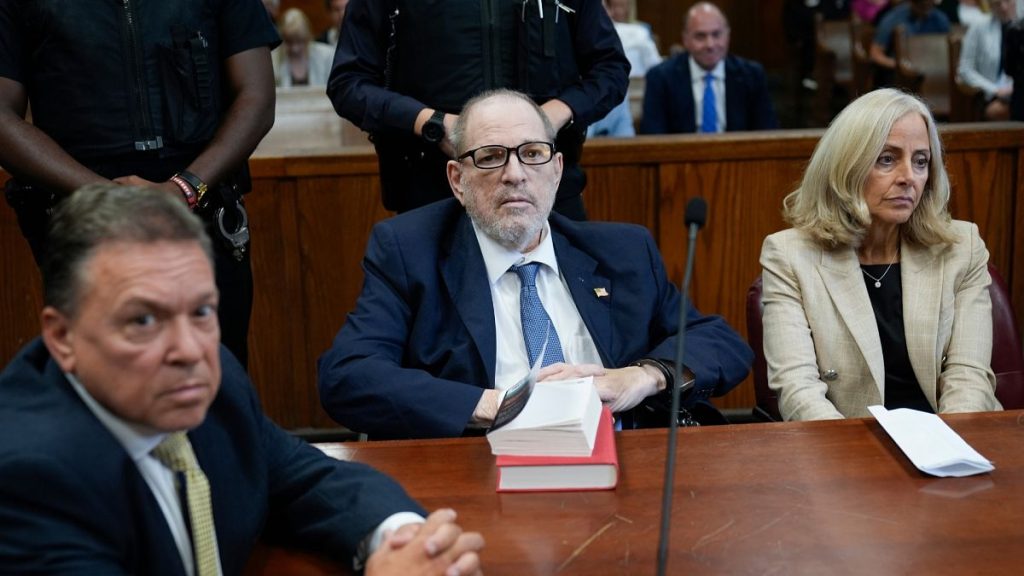Harvey Weinstein, the disgraced film mogul serving time at Rikers Island jail, has filed a legal claim highlighting alleged unsatisfactory medical treatment and hygiene issues while in custody. His legal team argues that the conditions of his confinement are akin to a “gulag,” particularly concerning how his chronic medical conditions, including chronic myeloid leukemia and diabetes, are being neglected. Weinstein’s attorney, Imran H Ansari, points out alarming observations from his recent visits, which revealed unsanitary clothing conditions, including blood-stained prison garb that had reportedly not been washed for weeks and a lack of clean underwear. The claim outlines the dire situation surrounding Weinstein’s health and the facilities’ failure to provide appropriate care, substantiating a potential lawsuit against New York City for $5 million in damages.
Weinstein, who is now 72, has been in custody since an appeals court overturned his 2020 rape conviction, which is set to be retried in 2025. His legal team emphasizes that Weinstein has denied all allegations of wrongdoing. Despite his claims of innocence, his health concerns have taken a toll; as documented, he was hospitalized twice in 2023 for various medical issues. These issues range from diabetes and high blood pressure to complications such as fluid on his heart and lungs, leading to emergency procedures. He has struggled with a decline in his overall health, reportedly appearing in a wheelchair at recent court appearances, highlighting a “train wreck” condition reflective of his deteriorating physical state.
The timeline of Weinstein’s health issues includes a particularly concerning incident earlier this year when he required emergency medical intervention to alleviate fluid overload in his lungs. Following each hospitalization, there are stark reports indicating that he was returned to Rikers Island before full recovery, raising questions about the adequacy of his post-care. The legal claims present an argument not only about Weinstein’s physical ailments but also about the systemic failures within the facility to ensure proper medical oversight and living conditions for inmates with serious health issues.
Further complicating his legal troubles, Weinstein faces new criminal allegations stemming from an incident in 2006 wherein he is charged with a “criminal sex act” involving an unnamed woman. The indictment outlines the incident as having occurred in a Manhattan hotel, and although the specifics remain undisclosed, it marks another addition to the numerous legal battles he faces following his prior convictions. Lindsay Goldbrum, the lawyer for the alleged victim, has expressed readiness to present her client’s case, emphasizing the survivor’s strength for coming forward and the importance of accountability in the judicial system.
The implications of Weinstein’s situation extend beyond the immediate legal claims to broader societal issues regarding the treatment of incarcerated individuals, especially those grappling with significant health problems. His case raises critical concerns about the adequacy of healthcare services in correctional institutions and the state’s responsibility to provide a safe and healthy environment for all inmates. Weinstein’s allegations point to a systemic issue that could resonate with numerous other cases, amplifying calls for reform to improve the standards of care within the prison system.
Thus, Weinstein’s legal claim against Rikers Island is part of a more extensive narrative that encompasses ongoing criminal proceedings against him, his deteriorating health, and the pressing need for reform within the correctional healthcare system. As his lawyers prepare for a lawsuit against the city and with the anticipation of a retrial in his rape case, Weinstein’s circumstances shine a light on the complexities of justice, accountability, and humane treatment for those facing serious legal consequences while managing grave health challenges.














